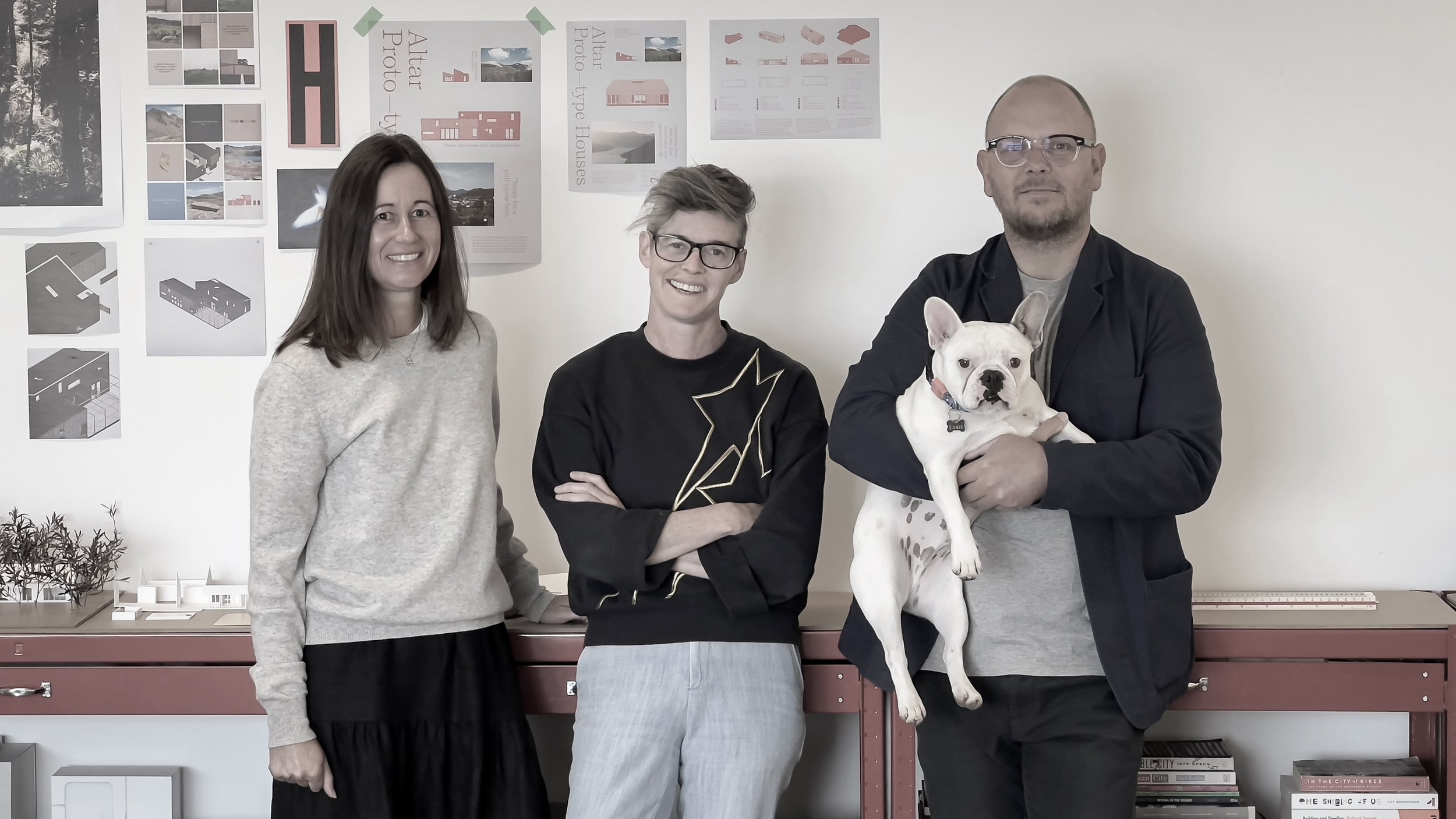Call for help, and a name change
A call has gone out to Auckland design students interested in volunteering to help with a survey on how locals use their city.
Run by Urban Good (previously AitkenTaylor) for Auckland Council, the Public Life Survey will also ask people what they want from their community.
Around 80 volunteers are required to be available for four hours on Wednesday March 16, and/or Saturday March 19. Urban Good director Den Aitken is cognisant of the timing with Omicron’s predicted peak but says it’ll offer valuable insights into who’s still venturing out into the city during such a time, how long they’re spending there, what they’re doing and if spaces are helping build resilience.
The Urban Good team. L-R Sarah Pickens, Alex Kirkwood, Louie the French Bulldog, and Den Aitken - absent is Kaara Wight.
“I think it's really important that we consider these types of pandemics as we continue to build cities and remember that our spaces are going to have to be very resilient,” Aitken says.
He believes Christchurch is ahead of the game in this realm because of the destruction it experienced with the earthquakes. “They realised quite early on how public spaces can really make your community more resilient. So I think there's some interesting data we can get from Auckland that can reflect either positively or negatively towards resilience.”
The basic information volunteers gather is around pedestrian movement, and how many people are walking past a particular spot at any time. “But when you zoom out and you look at the macro it tells how many people are around and walking to destinations. We encourage our surveyors to make notes about anything they find interesting. It starts to tell us a little bit about how the people who are living right in the city are moving around town and what some of these value destinations might be.”
Aitken says his team’s work in Nelson revealed vital information on children at play - or rather the lack of them - in the central city. “They (Nelson City Council) were really shocked to see that 3% of all registrations in winter were children at play, and that less than half a percent (of people) during summer were children aged five and under. This type of data tells us things. Such as, the city centre is likely not seen as a destination for children or young families. This could be from a lack of amenities for these groups, or it also may be that it is not perceived as a safe place for young people.
“The council’s response to this was swift, installing a new temporary play space on an otherwise vacant lot, while making plans for a permanent location in the heart of the city centre. Coupled with some mitigation around road safety, there has been a definitive increase in the number of youth and children in the city and parents out spending time with the kids.”
Aitken became interested in using an observation method for capturing the patterns of people in our streets, parks and public spaces after reading about the work of renown architect Jan Gehl, who developed Public Life Surveys. It was after carrying out Gehl’s study in Auckland in 2015/16 when Aitken was working at Auckland Council that he decided to take the plunge and run his own under the AitkenTaylor branding.
But in recent weeks the company has undergone a name change to Urban Good to better reflect the work the company does. As Aitken says, AitkenTaylor could have been an accountant or legal firm or anything really. But with most of its projects being in the urban realm he decided it was time for the name to better reflect what the company actually does.
“I like that marketing thing of saying what it does on the tin,” he says. “When I started this business in 2016 I didn’t quite know what we were going to end up doing and said yes to a lot of things. But we’re definitely in the urban space. And we talk in the office about doing projects for common good, so that’s how we got to Urban Good.”


